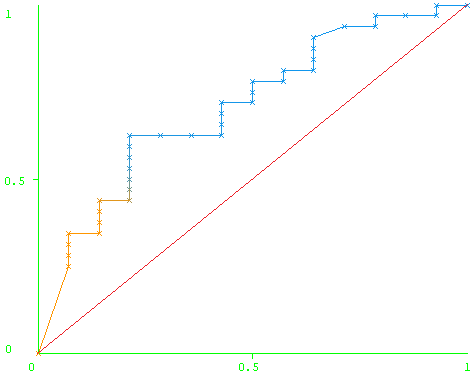Based on datasets generated from the City4Age Athens Pilot, MultiMed Engineers investigated how Machine Learning algorithms can be leveraged to early detect robustness decay in aging citizens.
The underlying idea is to demonstrate that measures collected through unobtrusive technologies available in smart-cities, when fed to an appropriately trained classifier, are capable to discriminate robust from non-robust people, as determined by clinically validated scales, with an accuracy sufficient to prove the concept.
Ground truth has been collected by using the Functional Ability Index (FAI) developed by Dapp et al., which is a validated instrument with strong predictive potential for the onset of frailty condition in aging populations.
Obtained results are encouraging, as they show meaningful association patterns existing among measures collected by the City4Age technology and FAI scores, as shown for example in the following pictures.

Figure 1. Measure transport_time_month for Robust (blue) and non-Robust (red) persons

Figure 2. Measure pharmacy_time_per_vist for Robust (blue) and non-Robust (red) persons
Appropriate Machine Learning schemes, experimented by MultiMed Engineers, seem to be able to pick up the above patters and learn classifiers with AUCs that are significantly different from randomness.
In particular, the WEKA software has been used to conduct relevant experiments, testing 21 Machine Learning schemes. Different learning schemes and different numbers of features have been compared applying nested cross-validation (to avoid bias in performance estimates) with the MultiScheme class.

Figure 3. The WEKA knowledge flow used for conducting experiments
The best performing scheme resulted to be a Naive Bayes model, trained on 46 datapoints with 60 features, preceded by a PCA step for dimensionality reduction. It produced an AUC value of around 0.7.

Figure 4. Example of ROC from one test run
Although these are preliminary results, based on few datapoints, they represent an important proof-of-concept that vindicates the ambition of City4Age — i.e. to efficiently detect the onset of aging conditions by leveraging smart-city supported, unobtrusive data collection.
This work is published as an exploitable result in the EU Horizon Results Platform.
 MultiMed Engineers
MultiMed Engineers